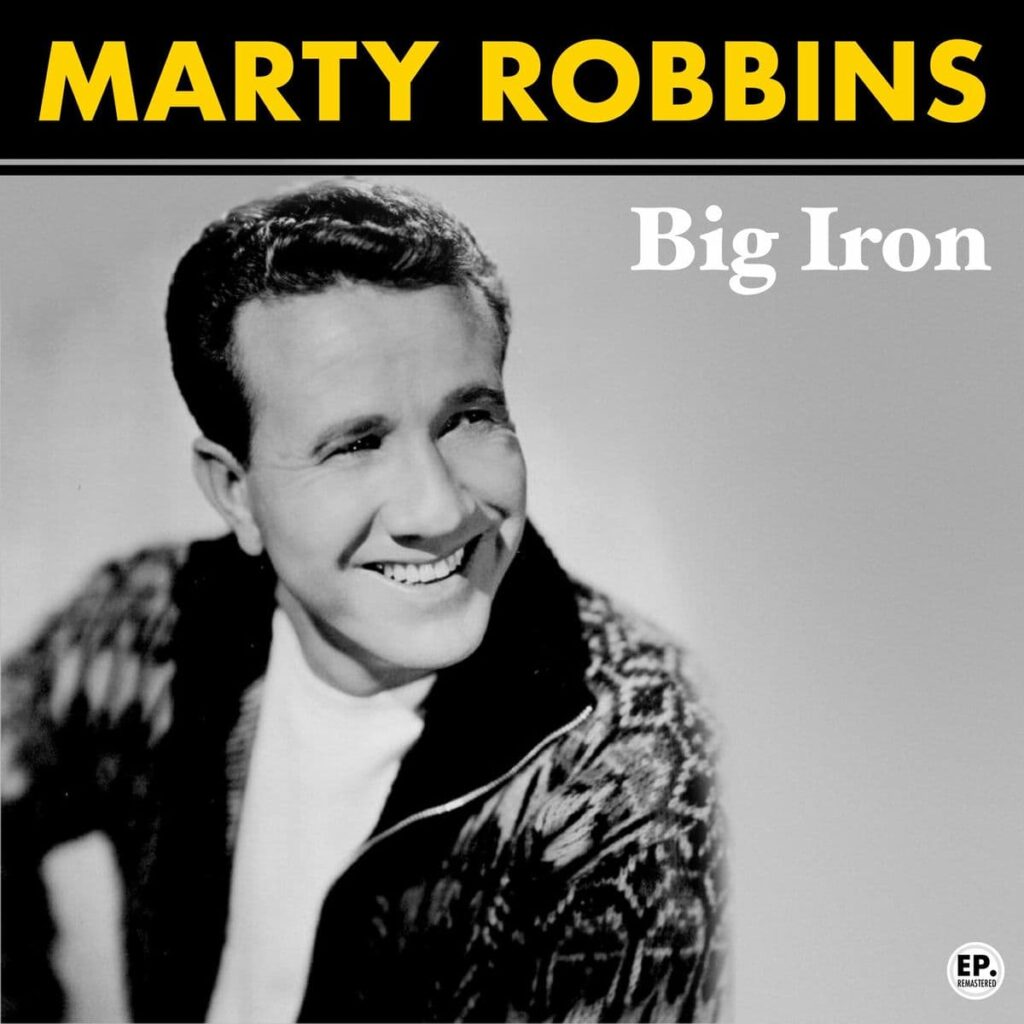
A Haunting Ballad of the Arid West and the Swift Justice of a Arizona Ranger
Ah, “Big Iron.” The very title conjures images of sun-baked mesas, dusty trails, and the steely glint of a gunfighter’s resolve. For many of us who came of age when Westerns dominated the silver screen and the airwaves, this song by the incomparable Marty Robbins isn’t just a tune; it’s a portal back to a simpler, perhaps more rugged, time. Released in 1959 on his seminal album “Gunfighter Ballads and Trail Songs,” “Big Iron” didn’t just climb the charts; it etched itself into the very fabric of American storytelling. While specific weekly chart positions for individual album tracks from that era can be elusive in the way we track singles today, the album itself was a monumental success, peaking at No. 6 on the Billboard Top LPs chart. This success cemented Robbins’ reputation not just as a country singer, but as a master balladeer, a troubadour of the frontier.
The brilliance of “Big Iron” lies in its deceptively simple narrative, yet its profound impact. It tells the concise tale of an Arizona Ranger, a man known for his lightning-fast draw and the imposing “big iron” on his hip, arriving in the town of Agua Fria. The town is gripped by fear, terrorized by a notorious outlaw named Texas Red, who has already claimed the lives of twenty men. The Ranger, with his almost mythical presence, confronts Texas Red in the dusty street. In a blink, the duel is over, with the Ranger emerging victorious, saving the town, and then riding off into the sunset. It’s a classic Western trope, yet in Robbins’ hands, it becomes something more, something that resonates deeply with our collective yearning for order in a chaotic world, for a hero to rise when all hope seems lost.
The meaning of “Big Iron” extends far beyond a simple shootout. It speaks to the themes of justice, courage, and the often-solitary burden of those who uphold the law. The Arizona Ranger is not portrayed as a bloodthirsty killer, but rather as an instrument of swift and necessary justice. He is a symbol of righteous authority in a lawless land, a man who acts not for personal gain or glory, but out of a deep sense of duty. For many of us, this resonated strongly with the ideals we were taught – that good would ultimately triumph over evil, and that there were still men of integrity willing to stand against the darkness. It was a comforting thought in a rapidly changing world, a world where the old certainties were beginning to fray.
Beyond its lyrical content, the sparse, almost stark arrangement of “Big Iron” is crucial to its enduring appeal. The steady, deliberate rhythm, the twanging guitar, and Marty Robbins’ clear, unwavering voice create an atmosphere that is both tense and strangely comforting. It’s a sound that evokes the vast, empty landscapes of the American West, the silence broken only by the creak of leather, the jingle of spurs, and the fateful click of a revolver. You can almost feel the heat radiating from the ground, the dust clinging to your boots. This isn’t a song designed for a raucous juke joint; it’s a song meant for quiet reflection, perhaps around a flickering campfire, or late at night when the world is still and the mind is free to wander.
It’s also worth remembering that Marty Robbins himself had a deep fascination with the American West and its history. He wasn’t just singing these songs; he was living them, at least in his imagination. His meticulous research into the era, his passion for the stories of gunfighters and lawmen, infused his music with an authenticity that few others could match. This wasn’t manufactured nostalgia; it was a genuine love for a bygone era, and that love shines through in every note of “Big Iron.” For those of us who grew up with these tales, who perhaps even played “cowboys and Indians” in our youth, this song is more than just a memory; it’s a testament to the enduring power of storytelling, and the timeless appeal of the hero’s journey in the untamed wilderness. It’s a reminder that even in a world that often feels chaotic and unjust, there can still be moments of swift, decisive justice, carried out by those who walk with a “big iron” on their hip, and a quiet resolve in their heart.